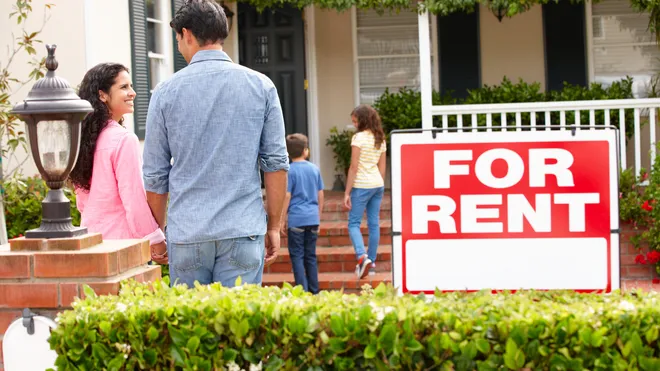Minnesota Rent Increase Laws 2024: Key Facts for Tenants. Tenants may find rent hikes to be an unwanted financial hardship. Tenants looking to secure their home security must be aware of Minnesota’s rent increase rules. In addition to providing important guidance for tenants facing a rent increase, this article will explain these regulations.
It’s critical to understand your rights and responsibilities when your rent increases if you rent in Minnesota.
While landlords are free to adjust rent to pay expenses and reflect the market, tenants have rights that ensure equitable treatment and prevent needless financial strain.
Understanding these rules will enable you to bargain, oppose unjust price increases, and make informed housing decisions.
Minnesota’s Absence of Rent Control
There are no statewide rent control regulations in Minnesota. This suggests that landlords are typically able to raise rents whenever they like in the majority of places.
However, some communities have lately passed rent stabilization legislation that limit annual rent increases, such Minneapolis and St. Paul.
Notice Requirements for Rent Increases
The law requires landlords to give tenants adequate notice before raising rent, even though Minnesota does not have statewide rent control. The sort of lease you have will determine how long you have to give notice:
Month-to-Month Leases: Landlords are required to give at least one day’s notice in addition to the entire renting duration. For example, you are entitled to at least 31 days’ notice if you pay rent on a monthly basis.
Leases with set terms: Unless your lease agreement expressly permits it, a rent increase cannot occur throughout the length of a fixed lease. According to the guidelines for month-to-month rentals, the landlord is required to give notice when the lease term expires.
If specified in your lease, the notice may be delivered in person, by mail, or electronically. It must be in writing.
Reasons for Justified Rent Increases
Landlords have several valid reasons to increase rent, including:
- Increases in Property Taxes: Landlords have the option to charge renters a share of the higher property taxes.
- Upkeep and Enhancement Costs: Rent increases may assist in paying for renovations, upgrades, or repairs that are required.
- Increasing Operating Costs: A landlord may raise rent in response to increases in utilities, insurance, or other operating expenses.
Discrimination and Retaliation Protection
Tenants in Minnesota are shielded from arbitrary or intentional rent increases by law. Your race, religion, national origin, sex, disability, family situation, or any other protected characteristic cannot be used as an excuse by your landlord to increase your rent.
Additionally, if you joined a renters’ union, complained about unsafe conditions, or used your legal rights as a tenant, your landlord cannot raise your rent.
Challenging a Rent Increase
If you feel that a rent increase is unfair or excessive, there are options to protest it. Look at these actions:
- Talk to Your Landlord: To begin, politely discuss your concerns with your landlord and determine whether a solution may be reached.
- Seek Legal Advice: For guidance on your particular circumstances, get in touch with a tenant advocacy group or a legal aid institution.
- Think About Mediation: To help landlords and tenants settle disagreements, several communities provide mediation services.
2024 Changes to Minnesota Rental Laws
Tenants should keep abreast of any modifications to Minnesota’s rental legislation. A few new rules that directly affect landlords and tenants went into effect in 2024:
- “Total Rent per Month” Disclosure: The “total monthly rent” must be advertised and disclosed by the landlord on the first page of the lease agreement. This covers any additional costs above the standard rent, such as move-in, cleaning, or administrative expenses. Tenant transparency is the goal of this.
- Minimum Temperature Requirement: From October through the end of April, landlords are required to keep rental units at a minimum temperature of 68 degrees Fahrenheit.
Tips for Tenants Facing Rent Increases
Having your rent increase can be a difficult situation. Here are a few strategies to handle the circumstance:
- Make a careful budget: To find out how much of an increase you can handle, reassess your spending and budget. Determine where you can cut back on expenses to make room for the increased rent.
- Try bargaining with your landlord if you’re a decent renter with a track record of on-time rentals. A polite discussion may result in a reduced increase or a decision to implement it gradually.
- Examine Housing help: Look into state or municipal housing help programs; you may be eligible for other types of aid, such as rental subsidies.
Important Considerations for Specific Cities
Rent Stabilization: Ordinances for rent stabilization have been put into place in Minneapolis and St. Paul. Learn the precise regulations that limit yearly rent increases in your city, as these may take precedence over the state’s general recommendations.
Additional Considerations
Residents of Mobile Home Parks: Different regulations may apply to mobile home park landlords. They typically have to give 60 days’ notice before raising rent and are only permitted to do so twice a year.
Keep a record of everything: Maintain thorough records of all correspondence with your landlord, notices of rent hikes, and any other pertinent paperwork. If you need to take more action, this information can be quite helpful.
Conclusion
Tenants who are aware of Minnesota’s rent increase legislation are better equipped to control their housing expenses.
It’s crucial to familiarize yourself with notice requirements, safeguards against unfair practices, and how to contest an increase. You can protect your housing stability and make well-informed decisions by making use of the resources that are available.


 by
by 




